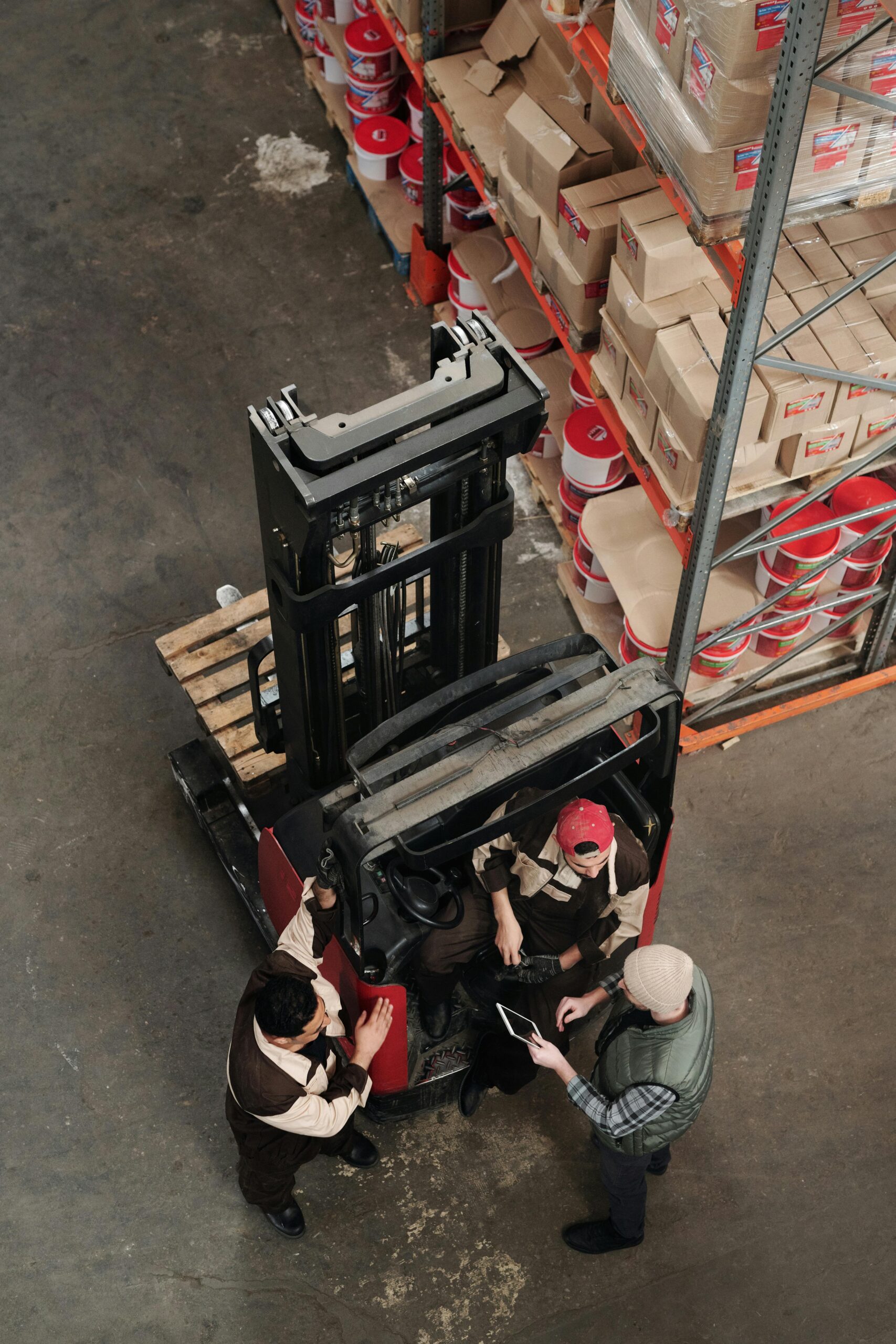
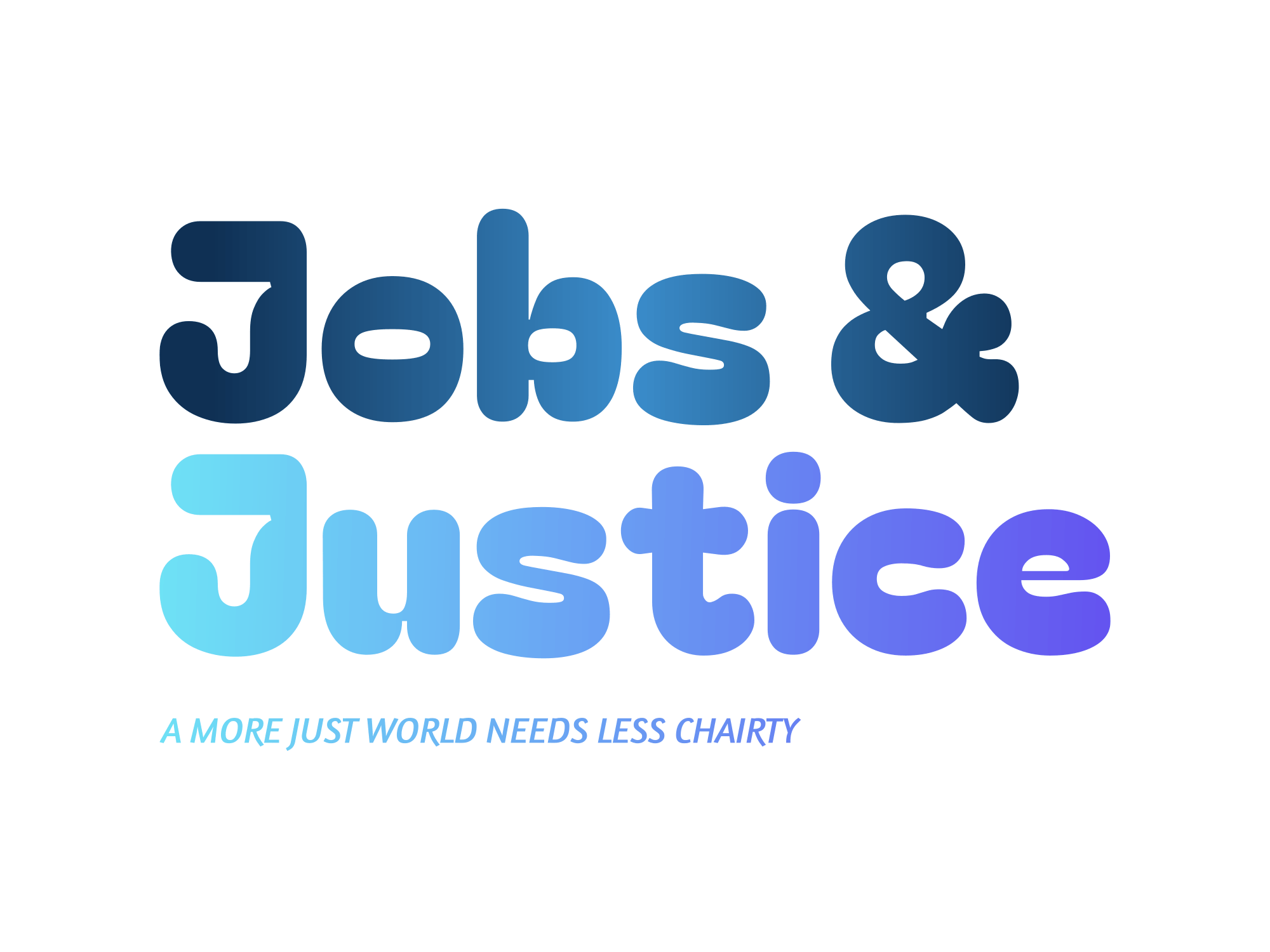

“The standard of ‘affordable’ housing is that which costs roughly 30 percent or less of a family’s income. Because of rising housing costs and stagnant wages, slightly more than half of all poor renting families in the country spend more than 50 percent of their income on housing costs, and at least one in four spends more than 70 percent.”
Matthew Desmond
JOBS & JUSTICE
The concept of “Jobs and Justice” encompasses a multifaceted relationship between employment opportunities, economic stability, and the pursuit of equitable treatment for all members of society. At the heart of this topic lies the fundamental belief that access to meaningful work is not merely a means of earning a livelihood, but also a critical component of an individual’s sense of dignity, self-worth, and participation in the larger social fabric. When jobs are scarce, unstable, or fail to provide a living wage, it can exacerbate existing disparities and perpetuate cycles of poverty, disproportionately impacting marginalized communities. Conversely, the availability of quality, well-compensated jobs that offer stability and opportunities for advancement can empower individuals, strengthen families, and contribute to the overall prosperity and cohesion of a society. The concept of justice in this context extends beyond the mere provision of employment, delving into issues of workplace discrimination, fair labor practices, and the dismantling of systemic barriers that have historically excluded certain groups from accessing economic opportunities. This holistic approach recognizes that the fight for social justice is inextricably linked to the fight for economic justice, as the two are intertwined and mutually reinforcing. By addressing the complex interplay between jobs and justice, policymakers, community leaders, and concerned citizens can work towards the creation of a more equitable and inclusive society where everyone has the chance to thrive and contribute to the greater good.
THE IMPORTANCE OF GOOD JOBS
All people deserve to be compensated fairly for their labor and to have access to the basic necessities and benefits that allow them to live with dignity and security. A living wage, which provides enough income to cover the essential costs of living, is a fundamental human right. Everyone who works full-time should be able to afford adequate housing, nutritious food, reliable transportation, and other basic expenses without having to choose between paying the rent or seeking medical care. Comprehensive health benefits, including coverage for preventative care, mental health services, and prescription medications, are equally vital, ensuring that a illness or injury doesn’t plunge a family into crippling debt. Paid time off, whether for vacation, personal needs, or tending to a loved one, gives workers the chance to rest, recharge, and attend to important life matters without fear of losing their job or income. And a pension that provides a stable source of income in retirement rewards a lifetime of hard work and allows older adults to live out their golden years with financial stability and peace of mind. These basic protections and entitlements are the markers of a just, compassionate society that values the well-being of all its citizens, not just the wealthy and privileged. When everyone has access to a living wage, comprehensive benefits, and a secure retirement, communities thrive, the economy grows, and humanity as a whole progresses. Providing these fundamental rights to all working people is not only a moral imperative, but an investment in a brighter, more equitable future for us all.
THE DECLINE OF GOOD JOBS
The decline in earnings and benefits for American workers is a complex and troubling trend that has been unfolding over recent decades. Once considered the backbone of the nation’s economic prosperity, the typical American worker now finds themselves earning less in real terms than their parents and grandparents did, despite advancements in productivity and technology. A key driver of this phenomenon is the erosion of union membership and collective bargaining power, which has allowed employers to steadily chip away at wages and benefits in the name of boosting profits and shareholder returns. Additionally, the shift towards a service-based economy and the proliferation of low-wage jobs in sectors like retail and food service has put downward pressure on compensation levels. Globalization and the offshoring of manufacturing have also played a role, as American workers must now compete with labor markets abroad that can undercut domestic wages. Meanwhile, the costs of healthcare, housing, and other essential expenses have skyrocketed, leaving workers with less purchasing power than in the past, even as they work longer hours. This perfect storm of economic forces has squeezed the middle class, contributing to rising inequality and a growing sense of financial insecurity among broad swaths of the American workforce. Addressing these complex challenges will require a multi-pronged approach involving labor reforms, investment in education and training, and a rebalancing of the relationship between employers, employees, and society as a whole.
THE NEED FOR CRIMINAL JUSTICE
The need for criminal justice reform in the United States is a pressing issue that has garnered increasing attention in recent years. Our current criminal justice system is plagued by deep-seated problems that disproportionately impact marginalized communities, undermine the principles of fairness and equality, and fail to effectively address the root causes of crime. Far too often, the system operates as a revolving door, trapping individuals in a cycle of incarceration and recidivism rather than providing the rehabilitative support and opportunities they need to successfully reintegrate into society. Sentencing disparities, the overuse of harsh mandatory minimums, and a lack of investment in evidence-based prevention and diversion programs have all contributed to the mass incarceration crisis, with the United States maintaining the highest incarceration rate in the world. Moreover, systemic biases within law enforcement and the courts have led to rampant racial inequities, with Black and Latino individuals facing harsher charges and longer sentences for similar offenses compared to their white counterparts. Reforming this broken system requires a multi-faceted approach that prioritizes rehabilitation over retribution, addresses the socioeconomic factors that drive criminal behavior, and implements robust accountability measures to root out discrimination and misconduct. Only by fundamentally transforming the way we approach criminal justice can we hope to build a more equitable, humane, and effective system that enhances public safety while upholding the core values of justice and human dignity.
LIFE LONG IMPACT OF AN ARREST
Having a criminal record can significantly complicate and hinder someone’s life in a multitude of ways. Even a single conviction, no matter how minor the offense, can create a persistent stigma that follows an individual around and makes it exponentially harder for them to move forward and get their life back on track. With a criminal record, finding employment becomes an immense challenge, as many employers are hesitant to hire applicants with any kind of legal blemish on their background. Securing housing can also prove difficult, as landlords frequently run criminal background checks and may deny leases to those with a record. Beyond occupational and residential hurdles, a criminal record can limit someone’s ability to obtain loans, credit cards, or even professional licenses required for certain careers. The ramifications extend into one’s personal life as well, as a tarnished record can damage relationships, strain familial bonds, and make it harder to regain the trust and respect of one’s community. The psychological toll of the constant roadblocks and societal judgment can be crushing, leaving those with a criminal history feeling trapped, ashamed, and struggling to overcome their past mistakes. Overcoming the many obstacles posed by a criminal record requires tremendous perseverance, as these individuals must work tirelessly to rebuild their lives and overcome the stigma that can haunt them for years, if not the rest of their lives.
ALTERNATIVES TO INCARCERATION
While incarceration has long been the default approach for dealing with criminal offenders, there is a growing recognition that traditional prisons may not be the most effective or humane solution, particularly for non-violent offenders. As society has become more enlightened, a number of alternative sentencing options have emerged that offer a more rehabilitative and restorative approach. One such alternative is community service, where offenders are required to perform a set number of hours of unpaid work that benefits the local community, such as cleaning parks, working in food banks, or assisting with community projects. This not only holds the offender accountable, but also allows them to make amends and develop a stronger connection to the people they’ve impacted. Another option is house arrest, which confines the offender to their home aside from approved activities like work or medical appointments, monitored by electronic tracking devices. This allows the offender to maintain their job and family responsibilities while still facing consequences. Restorative justice programs are also becoming more common, bringing the victim, offender, and community members together to facilitate dialogue, understand the harm caused, and determine appropriate restitution. These programs focus on healing and rehabilitation rather than just punishment. Finally, some jurisdictions are experimenting with treatment-based sentencing, routing non-violent offenders into intensive rehabilitation programs for substance abuse, mental health issues, or other underlying factors that may have contributed to their criminal behavior. By addressing the root causes, this approach aims to reduce recidivism more effectively than a traditional prison sentence. While not a perfect solution, these alternatives to incarceration hold promise for creating a more just, humane, and effective criminal justice system, especially for non-violent offenders.
THE DEATH PENALTY
DOES MORE HARM THAN GOOD
The debate surrounding the death penalty is a complex and contentious one, with valid arguments on both sides. However, when closely examined, the evidence suggests that the practice of capital punishment ultimately does more harm than good for society. For one, the death penalty has been shown to be an ineffective deterrent against serious crime, with numerous studies failing to find a statistically significant link between executions and reduced homicide rates. In fact, many states and countries that have abolished the death penalty have seen their murder rates decline just as much, if not more, than those that retain it. Furthermore, the process of capital punishment is rife with the potential for errors, with innocent lives tragically lost due to wrongful convictions that can never be undone. The emotional trauma and lifelong anguish experienced by the families of those wrongfully executed is unimaginable. Beyond that, the death penalty is applied in a deeply unequal manner, with defendants of color and those lacking adequate legal representation far more likely to receive a death sentence, even for the same crimes. This speaks to systemic biases and inequities in the criminal justice system that should give us great pause. Ultimately, while the desire for retribution and justice is understandable, the irreversible nature of capital punishment and its proven ineffectiveness as a deterrent mean that the societal costs far outweigh any potential benefits. A more humane, ethical, and effective approach is to focus criminal justice efforts on crime prevention, rehabilitation, and providing closure for victims’ families through alternative means.
TAKE ACTION NOW
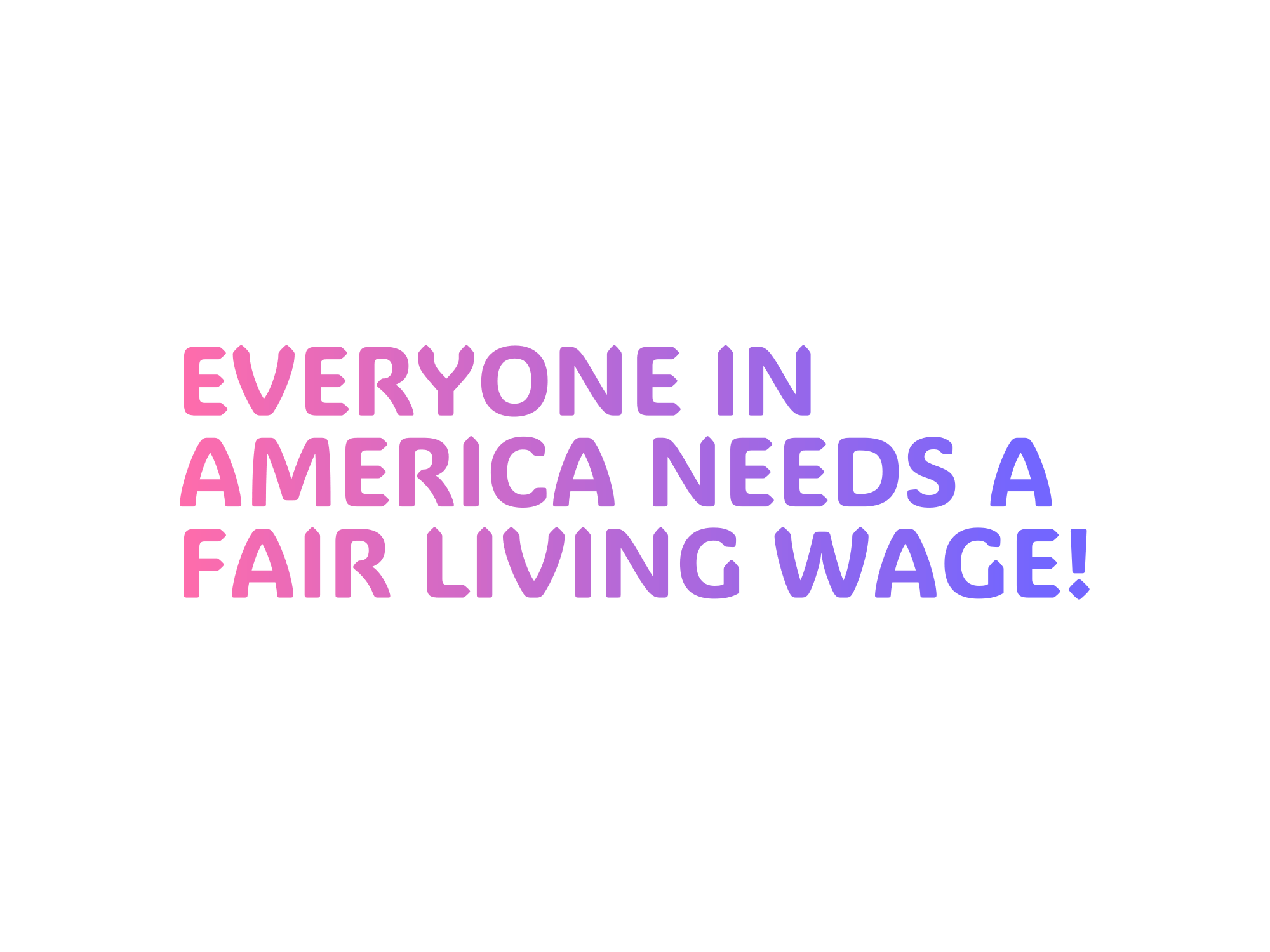
Nobody cares anymore!
Everyone should make a fair living wage!
Congress must raise the federal minimum wage across America to $18 an hour. Then raise minimum wage every 2 years so we can afford to raise our families, pay bills, live our lives.
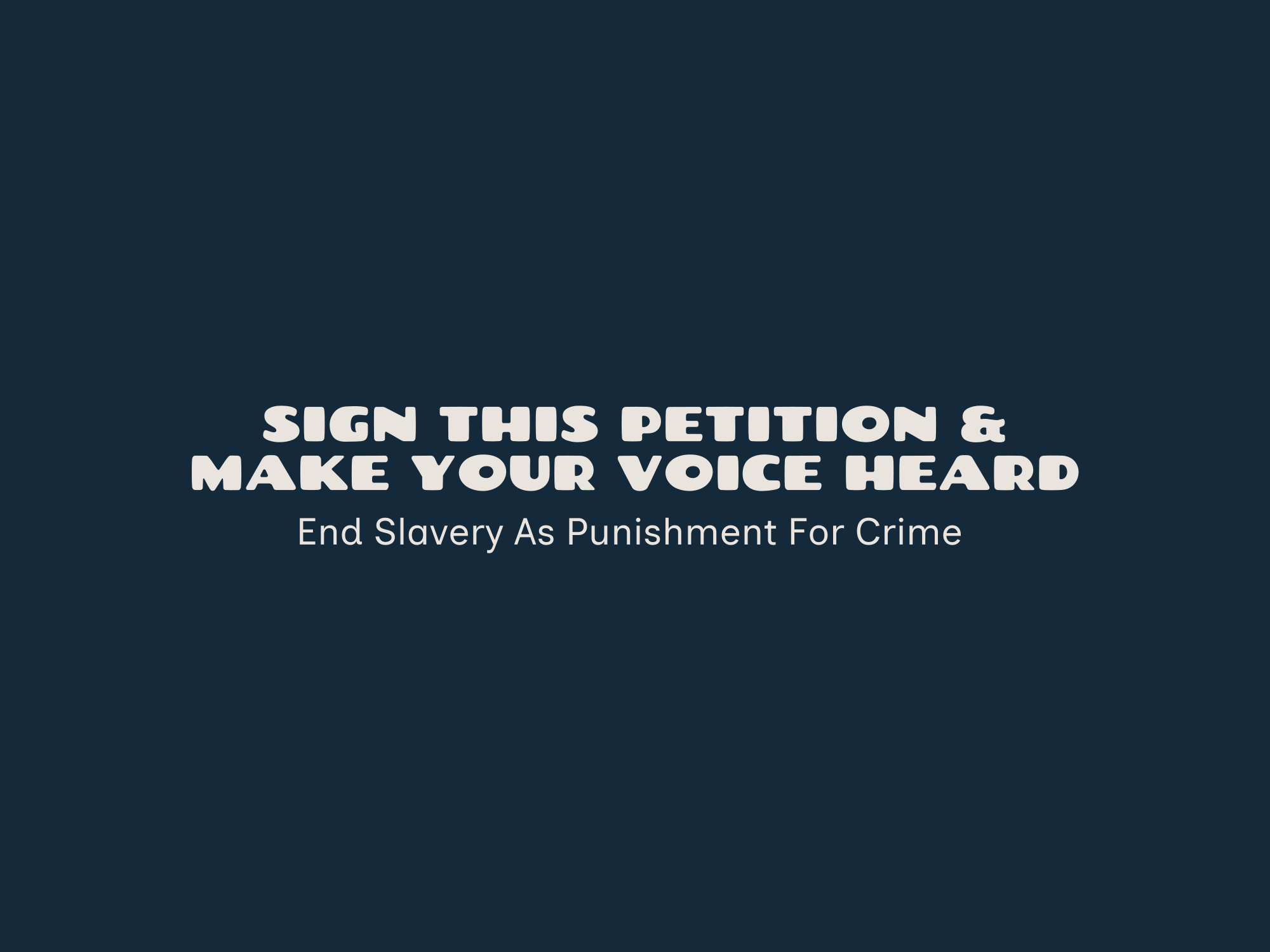
ADD YOUR NAME
To end forced prison labor
Emancipation was not the end of racism and, in many ways, it wasn’t even the end of slavery in the United States. The 13th Amendment outlawed the use of slavery except for people who have been convicted of a crime.
Today, people who are incarcerated are routinely forced to work for little to no pay under the threat of additional punitive measures, such as the loss of family visits and solitary confinement.
“Let us wage a moral and political war against the billionaires and corporate leaders, on Wall Street and elsewhere, whose policies and greed are destroying the middle class of America.” –Bernie Sanders
Jobs and Justice
Introduction
The quest for good jobs and justice has long been a cornerstone of societal progress. As we navigate a rapidly changing world, the importance of ensuring fair employment opportunities and equitable treatment for all individuals becomes increasingly paramount. This document explores the interplay between employment and justice, examining the factors that contribute to a more equitable society and proposing strategies to achieve these goals.
The Importance of Good Jobs
Economic Stability
Good jobs are essential for economic stability. They provide individuals with the means to support themselves and their families, contributing to a robust economy. Having access to stable employment reduces poverty and improves overall quality of life.
Personal Fulfillment
Beyond economic needs, jobs offer personal fulfillment. They allow individuals to pursue their passions, develop skills, and achieve personal growth. The sense of purpose derived from meaningful work is vital for mental and emotional well-being.
Social Cohesion
Employment fosters social cohesion by bringing diverse groups together. Workplaces can be environments where people from various backgrounds collaborate and learn from each other, promoting understanding and reducing social divides.
The Role of Justice in Employment
Fair Hiring Practices
Justice in employment begins with fair hiring practices. Ensuring that all individuals have equal access to job opportunities, regardless of race, gender, or socioeconomic background, is crucial. Employers must commit to eliminating biases and creating diverse and inclusive workplaces.
Equitable Compensation
Equally important is equitable compensation. Fair wages and benefits should be standard for all employees, reflecting their contributions and supporting their livelihoods. Addressing the wage gap and ensuring equal pay for equal work are essential steps toward justice in employment.
Safe and Respectful Work Environments
Creating safe and respectful work environments is fundamental to justice. Employees should feel secure and valued in their workplaces, free from discrimination, harassment, and unsafe conditions. Implementing strong workplace policies and fostering a culture of respect are key components.
Strategies for Achieving Good Jobs and Justice
Education and Training
Investing in education and training is vital for equipping individuals with the skills needed for the job market. Access to quality education and vocational programs ensures that everyone has the opportunity to succeed in their chosen fields.
Policy and Legislation
Government policies and legislation play a critical role in promoting good jobs and justice. Enacting laws that protect workers’ rights, promote fair labor practices, and support economic growth can drive significant change.
Corporate Responsibility
Businesses have a responsibility to contribute to social justice. By prioritizing ethical practices, championing diversity, and investing in their communities, companies can lead the way in creating a more equitable workforce.
Conclusion
Achieving good jobs and justice for all is a collective effort that requires commitment from individuals, businesses, and governments alike. By fostering fair employment opportunities and ensuring justice in the workplace, we can build a more inclusive and prosperous society for everyone.
The Challenges Presented by Capitalism
and
The Criminal Justice System
The Challenges of Living While Not Earning a Living Wage
Living without earning a living wage is a struggle that affects millions of individuals and families worldwide. This situation presents numerous challenges that can impact every aspect of life, from basic needs like food and shelter to long-term goals like education and retirement. Below, we delve into some of the key challenges faced by those earning below a living wage.
Financial Instability
One of the most immediate challenges is financial instability. A living wage is defined as the minimum income necessary for a worker to meet their basic needs. Without it, individuals may find themselves constantly juggling bills and expenses. This can lead to:
- Debt Accumulation: Many people rely on credit cards or loans to cover essential expenses, leading to high-interest debt.
- Inability to Save: Saving for emergencies, retirement, or future goals becomes nearly impossible.
- Barely Meeting Basic Needs: Struggling to afford necessities like food, housing, and healthcare.
Housing Insecurity
Affordable housing is a significant concern for those not earning a living wage. The cost of rent or mortgage payments often consumes a large portion of their income, leading to:
- Overcrowded Living Conditions: Sharing small spaces with multiple individuals or families to reduce costs.
- Frequent Moves: In search of cheaper housing, leading to instability and loss of community.
- Risk of Homelessness: Being unable to afford rent increases or unexpected expenses can lead to eviction.
Health Challenges
Lack of a living wage can also severely impact health, as individuals may not have access to essential healthcare services. This can result in:
- Skipping Medical Care: Avoiding doctor’s visits or not taking prescribed medications due to cost.
- Poor Nutrition: Inability to afford healthy foods, leading to reliance on cheaper, less nutritious options.
- Chronic Stress: Constant financial strain can lead to mental health issues like anxiety and depression.
Educational Barriers
Education is often seen as a pathway to better opportunities, but those not earning a living wage face significant educational barriers:
- Limited Access to Education: High costs of tuition and associated fees can prevent further education or training.
- Balancing Work and Study: Those who manage to enroll in educational programs often have to juggle multiple jobs.
- Impact on Children: Limited resources can affect children’s educational opportunities and outcomes.
Social and Emotional Strain
The stress of living without a living wage extends beyond the financial realm:
- Social Isolation: Inability to participate in social activities due to cost can lead to feelings of isolation.
- Strained Relationships: Financial stress can cause tension and conflict within families or among friends.
- Loss of Hope: The ongoing struggle can lead to a sense of hopelessness about the future.
Conclusion
Living without a living wage is a multifaceted challenge that affects individuals’ financial, physical, and emotional well-being. Addressing this issue requires comprehensive policy measures, including increasing minimum wage standards, providing affordable housing, and improving access to healthcare and education. By understanding and addressing the challenges faced by those earning below a living wage, society can work towards a more equitable and sustainable future for all.
Impact on a Person’s Life from Being Arrested
Being arrested can have profound and lasting effects on various aspects of a person’s life. The repercussions can extend beyond the immediate legal consequences, influencing personal relationships, employment opportunities, mental health, and societal perceptions. Understanding these impacts is essential for fostering empathy and promoting rehabilitation over stigmatization.
Legal and Financial Consequences
The most immediate impact of being arrested is the legal proceedings that follow. This can include:
Court Appearances: Frequent court appearances can be time-consuming and stressful, often requiring legal representation.
Fines and Legal Fees: Paying for legal defense and any fines imposed by the court can create significant financial burdens.
Probation or Incarceration: Depending on the severity of the offense, an individual may face probation or incarceration, both of which have further repercussions.
Employment Challenges
An arrest record can significantly hinder employment opportunities:
Background Checks: Many employers conduct background checks and may be reluctant to hire someone with an arrest record.
Job Loss: If the arrest becomes public or affects one’s ability to perform their job, it can lead to termination.
Career Advancement: Even if employed, promotions or advancements may be limited due to a tarnished reputation.
Impact on Personal Relationships
An arrest can strain personal relationships in various ways:
Family Dynamics: Family members may experience stress, embarrassment, or financial strain as a result of the arrest.
Social Stigma: Friends and acquaintances might distance themselves, leading to isolation.
Trust Issues: Trust within relationships may be eroded, requiring time and effort to rebuild.
Mental Health Implications
The experience of being arrested can take a toll on an individual’s mental health:
Stress and Anxiety: The uncertainty of legal outcomes and potential incarceration can lead to chronic stress and anxiety.
Depression: Feelings of shame, guilt, or hopelessness can contribute to depression.
Post-Traumatic Stress: The arrest process itself, especially if it involved force or public humiliation, can be traumatic.
Societal Perceptions
Perceptions in Society often views those who have been arrested through a critical lens:
Stigmatization: There is a societal stigma associated with having a criminal record, which can affect how individuals are perceived and treated by others.
Barriers to Reintegration: This stigma can create barriers to reintegration into society, limiting access to housing, education, and community support.
Rehabilitation and Positive Outcomes
Despite the challenges, there are pathways to positive outcomes post-arrest:
Legal Reforms: Advocacy for legal reforms can help reduce the long-term impact of arrest records.
Support Systems: Access to counseling, rehabilitation programs, and community support can aid in recovery and reintegration.
Personal Growth: Some individuals use the experience as a catalyst for personal growth and change, learning new skills or pursuing education.
In conclusion, while being arrested can have significant negative impacts on a person’s life, understanding these effects can lead to more supportive and rehabilitative approaches, ultimately benefiting individuals and society as a whole.
Improving Jobs, to Improve Justice

To safeguard and enhance the middle class, a multifaceted approach is essential, focusing on economic stability, access to quality education, and affordable healthcare. Strengthening job security through policies that promote fair wages and benefits can help ensure that middle-class families can thrive. Additionally, investing in education and vocational training programs will equip individuals with the skills needed for the evolving job market, enabling them to secure better-paying positions. Furthermore, making healthcare more accessible and affordable will alleviate financial burdens, allowing families to allocate resources towards savings and investments. By fostering an environment that prioritizes these key areas, we can create a robust framework that not only protects the middle class but also empowers it to flourish in the future.
Labor unions play a crucial role in fostering the growth of the middle class by advocating for fair wages, better working conditions, and job security. These organizations empower workers to collectively negotiate with employers, ensuring that their voices are heard and their rights are protected. By securing higher pay and benefits, unions help to elevate the standard of living for workers, which in turn contributes to a more robust and prosperous middle class. Additionally, unions often provide training and educational opportunities, equipping members with the skills needed to advance in their careers. This not only enhances individual livelihoods but also stimulates economic growth, as a thriving middle class drives consumer spending and supports local businesses. Ultimately, the presence of strong labor unions is essential for creating a more equitable society where the middle class can flourish.
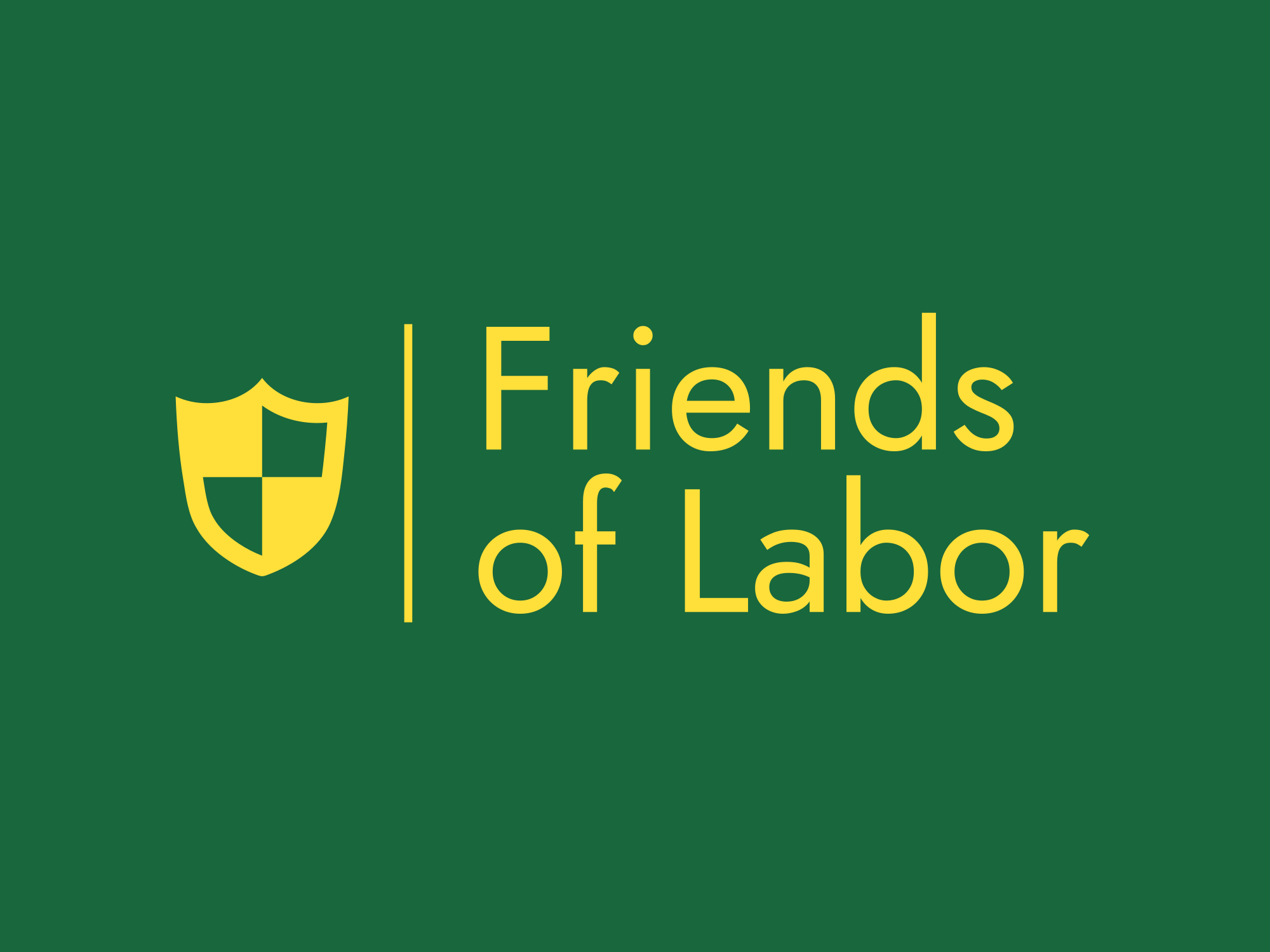
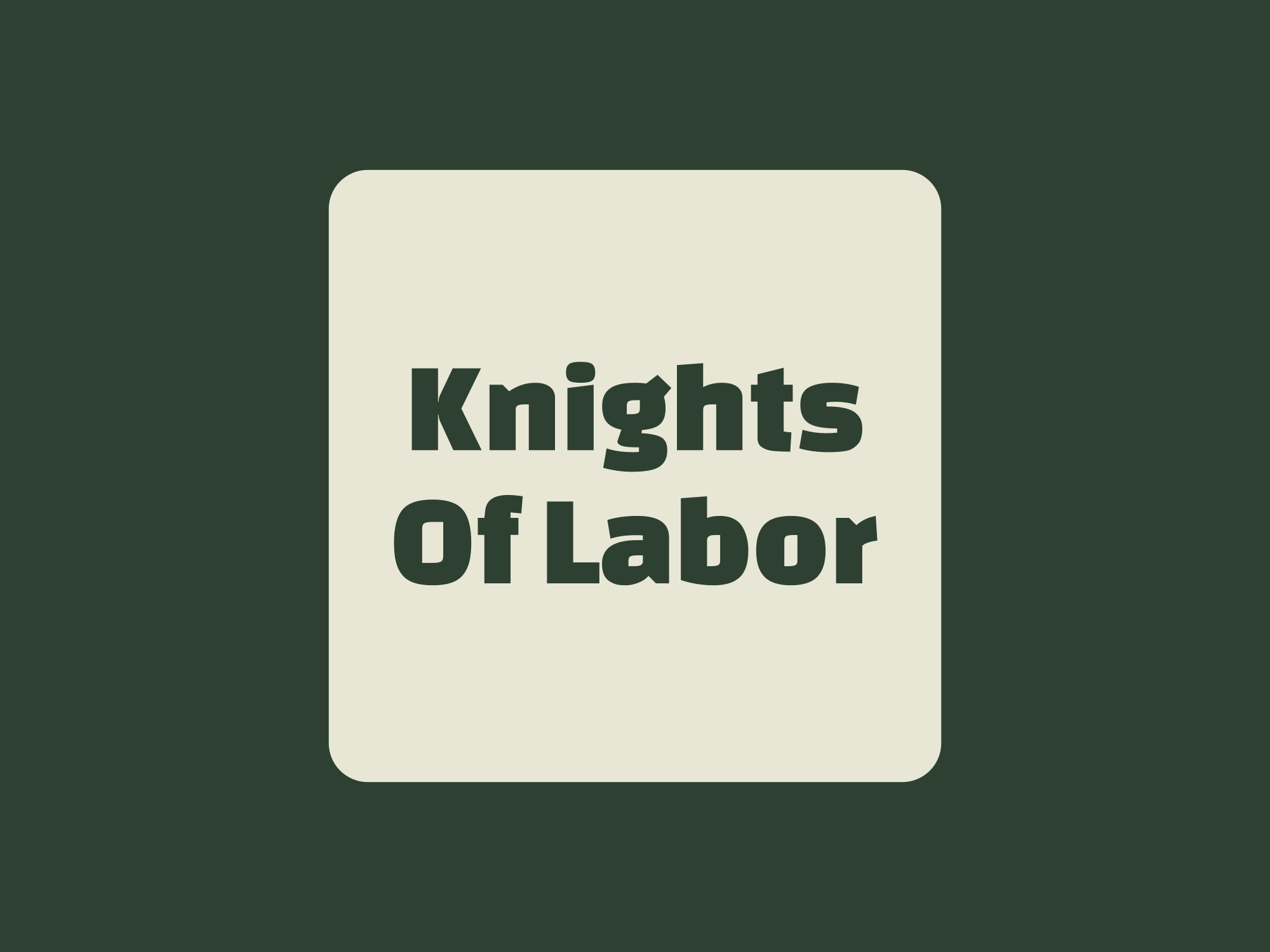
The importance of incorporating a social aspect to enhance class consciousness is crucial for bolstering the labor movement and expanding the middle class. By fostering a sense of community and shared purpose among workers, we can cultivate a stronger awareness of their collective interests and rights. This social engagement not only empowers individuals but also unites them in their efforts to advocate for better working conditions, fair wages, and equitable opportunities. As the labor movement gains momentum through these connections, it can effectively contribute to the growth of a robust middle class, ultimately leading to a more balanced and just society.
Good Jobs Expand The Middle Class
&
A World With More Middle Class Families Is More Just
1. Children hailing from middle-class backgrounds tend to have a lower propensity for engaging in criminal activities and facing incarceration. This observation suggests that socioeconomic status plays a significant role in shaping behavior and opportunities. When families have access to stable income, education, and community resources, children are more likely to develop positive life skills and make constructive choices, steering them away from paths that could lead to criminal behavior.
2. One effective strategy for reforming the criminal justice system is to focus on the expansion of the middle class. By enhancing economic stability and providing better educational opportunities, we can create an environment where individuals are less inclined to resort to crime. A robust middle class can contribute to a healthier society, as it fosters a sense of community and shared responsibility, ultimately reducing the factors that lead to criminal activity.
3. Investing in initiatives that support the growth of the middle class can have far-reaching implications for crime reduction and justice reform. When families are empowered with the means to thrive, it not only benefits them but also strengthens the fabric of society as a whole. By prioritizing policies that promote economic growth and equitable access to resources, we can work towards a future where fewer individuals find themselves entangled in the criminal justice system, leading to safer communities for everyone.
“Let the workers organize. Let the toilers assemble. Let their crystallized voice proclaim their injustices and demand their privileges. Let all thoughtful citizens sustain them, for the future of Labor is the future of America.” –John L. Lewis
![28[1]](https://peopleforajustworld.org/wp-content/uploads/2025/04/281.png)
![25[1]](https://peopleforajustworld.org/wp-content/uploads/2025/04/251.png)
![20[1]](https://peopleforajustworld.org/wp-content/uploads/2025/04/201.png)
![24[1]](https://peopleforajustworld.org/wp-content/uploads/2025/04/241.png)
![27[1]](https://peopleforajustworld.org/wp-content/uploads/2025/04/271.png)
![22[1]](https://peopleforajustworld.org/wp-content/uploads/2025/04/221.png)
![19[1]](https://peopleforajustworld.org/wp-content/uploads/2025/04/191.png)
![1[1]](https://peopleforajustworld.org/wp-content/uploads/2025/04/11-1.png)
![2[1]](https://peopleforajustworld.org/wp-content/uploads/2025/04/21-1.png)
![23[1]](https://peopleforajustworld.org/wp-content/uploads/2025/04/231.png)
![18[1]](https://peopleforajustworld.org/wp-content/uploads/2025/04/181.png)
![26[1]](https://peopleforajustworld.org/wp-content/uploads/2025/04/261.png)